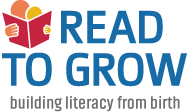Reading aloud — from a book — can help close the health equity gap
US News & World Report
By Dr. John Hutton March 30, 2016
The image was riveting. Like an X on a treasure map, the orange-yellow spot on a series of MRI frames marked an area in the brain that was brimming with activity. We were witnessing the physiological impact of greater reading exposure in the brains of preschool children.
This spot, located in the left hemisphere, supports language and imagery. For the first time, our team at the Cincinnati Children’s Hospital Reading and Literacy Discovery Center had found visible evidence of what has long been claimed: A stronger home reading environment in the critical years of development before kindergarten helps shape a child’s brain. Our research was published in the journal “Pediatrics” late last year.
For decades, behavioral research has made a clear case for the developmental value of reading aloud to a child. In 2014, the American Academy of Pediatrics recommended that parents or caregivers read aloud beginning at birth. But somehow, seeing this effect in brain images from actual children made these recommendations more urgent. Parents now are able to clearly see the benefits of reading to their children, even during infancy. Similarly, pediatricians can make the case to parents and caregivers that reading is a matter of health and essential for brain development.
But a new survey finds that parents and caregivers aren’t reading to children early or often enough. What’s more, technology is too often an obstacle, rather than an enhancement, to reading aloud, something I’ve seen in research and in my clinical experience. Here are some key findings from the survey of 1,294 adults:
- Only 46 percent of parents say they read aloud every day with their children, and only 34 percent read for at least 15 minutes.
- Only 15 percent of parents say their children were read to from birth, though 64 percent say reading aloud started by age 1.
- Four in 10 parents say their children spend too much time watching TV, while a third say the same about the time kids spend on devices.
For the full article, please click here: http://www.usnews.com/opinion/knowledge-bank/articles/2016-03-30/how-reading-aloud-from-birth-can-help-close-the-health-equity-gap
John Hutton is a primary care pediatrician and researcher at the Cincinnati Children’s Hospital Reading and Literacy Discovery Center. He is a father of three, author of the “Baby Unplugged” children’s book series and a partner of Read Aloud 15 Minutes, a nonprofit that advocates reading aloud to children for 15 minutes each day as the new standard in child care.
ShareAPR
2016

